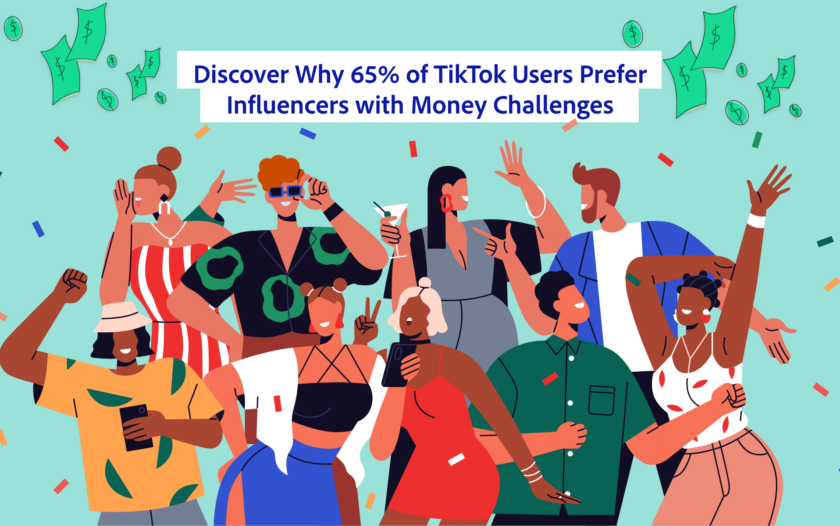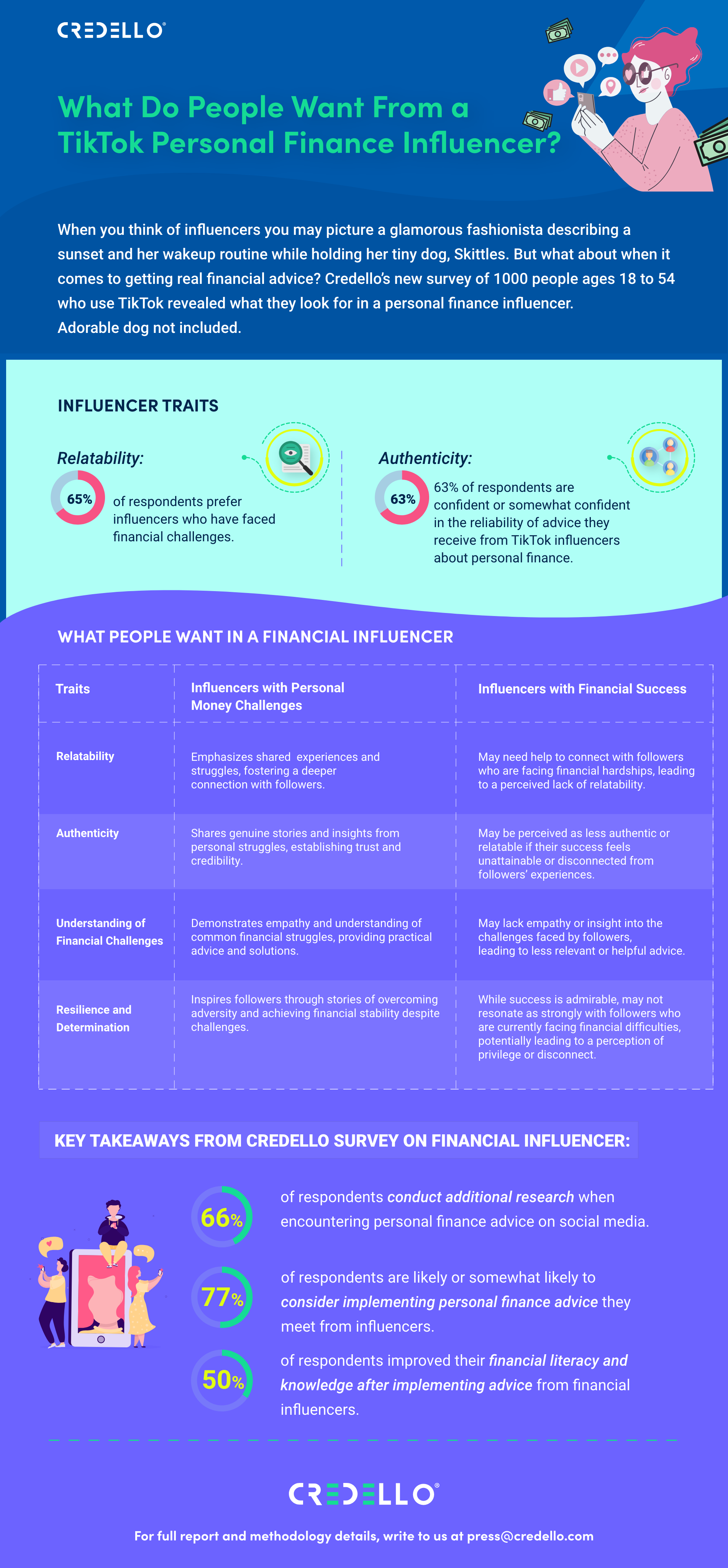Survey Reveals 65% of TikTok Users Favor Influencers Who’ve Overcome Money Woes
About Anouare
Anouare is a seasoned writer, editor and content strategist who started her career as a lifestyle journalist before stepping into leadership roles at publications such as AskMen and Goalcast. From editorial strategy to content marketing and project-management, she has tackled various challenges in digital media and discovered her passion for mentoring others in the process. She loves a good money mindset book and believes you can create your dream lifestyle by being yourself.
Read full bio
At a Glance
When it comes to money, knowledge is power – and a lack of knowledge can hurt your bank account. In the U.S., less than 30% of respondents can correctly answer the Big Three financial literacy questions by age 40. Those three basic questions are often used to measure financial literacy and pertain to financial decisions such as saving and investing.
Enter TikTok, which is becoming an avenue for younger people looking to educate themselves on everything related to money. The rise of personal influencers is changing how people access financial advice. Credello set out to find out how with its new Financial Influencer Survey, which surveyed 1,000 people who use the social media platform TikTok ages 18 to 54.
It may not shock you that people turn to TikTok for money advice. But you may be surprised to find out what makes a personal finance influencer appealing. It’s not their credentials or money-savviness. It’s their journey. Most people prefer influencers who have overcome financial challenges first-hand.
Key highlights on how TikTok is reshaping the financial education
- Respondents who use TikTok prefer influencers who have faced financial challenges (65%) or have achieved financial success (62%).
- Most respondents (66%) conduct additional research when encountering personal finance advice on social media. Most respondents (77%) are likely or somewhat likely to consider implementing personal finance advice they meet from influencers.
- 63% of respondents who use TikTok are confident or somewhat confident in the reliability of advice they receive from TikTok influencers about personal finance. Most respondents experienced positive impacts on their finances (46%) or improved their financial literacy and knowledge (50%) after implementing advice from financial influencers.
Influencers who have faced money challenges have an edge
Move over Dave Ramsey, people now want to get financial advice from experts that they can relate to. Personal TikTok influencers who have faced unique money challenges or achieved financial success on their journey have an edge. More money problems, more followers!
According to Credello’s survey, 65% of people who use TikTok prefer getting advice from influencers who have faced financial struggles, while 62% of people on TikTok favor influencers who have achieved a certain level of financial success.
It makes sense: You’re more likely to trust someone who has walked their talk and understands where you’re coming from – and how to achieve your goals – based on first-hand experience.
People take advice from influencers but do their own research
There was once a time when you’d turn to a personal finance advisor for money advice, or maybe you’d pick up a book or do a Google search. Financial influencers are changing the game. A staggering 77% of people on TikTok are likely to consider implementing money advice from influencers, according to Credello.
They also tend to trust the advice they’re getting: 63% of respondents on the TikTok platform are confident or somewhat confident in the reliability of advice they receive from TikTok influencers. That said, people still dig deeper once they encounter financial content on TikTok, with two-thirds admitting that they conduct additional research after encountering personal finance advice on social media.
So, is TikTok a good thing for raising financial literacy levels? It seems like it, with 46% of respondents on TikTok reporting a positive impact on their finances and 50% reporting improved financial literacy after implementing advice from financial influencers.
Pros and cons of getting financial advice from influencers
Credello’s survey results paint a picture of how consumers choose to interact with financial advice on social media. It reveals some positives, but there are potential downsides to consider before implementing money advice on TikTok. Here are the pros and cons to consider.
Pros
Influencers can be more relatable than the typical money expert. For example, as a young woman, you might prefer getting insights from someone who looks like you and understands your struggles instead of a man twice your age who works at a bank. There’s also the fact that financial influencers tend to make complex financial concepts more accessible to a broader audience. TikTok videos are short and digestible and can make the topic of money less intimidating.
Cons
On the other hand, it’s essential to consider that many influencers are self-taught and lack formal financial education and credentials. Furthermore, some influencers earn a living through sponsorships, which may impact the type of advice they share. Finally, some financial topics are complex and may be oversimplified in a TikTok video – context and nuance can be critical to your decision-making, especially regarding areas like investing.
Bottom line
Influencers on TikTok aren’t going anywhere (sorry, Billie Eilish) and are democratizing financial advice. People appreciate their advice, but they’re also using it as a springboard for learning more, which is good considering the importance of financial literacy.
That said, proceeding cautiously before mindlessly following money advice is crucial, even if you like an influencer based on their journey. Doing additional research and seeking professional guidance is a good idea before making big money moves.
This survey was conducted by a third-party survey platform – Pollfish, on behalf of Credello. The sample of 1000 Americans (ages 18 through 54) in the U.S. was surveyed on February 16, 2024. The results have been weighted to balance responses to census statistics on the dimensions of age and gender. For complete survey methodology, please contact support@credello.com.










